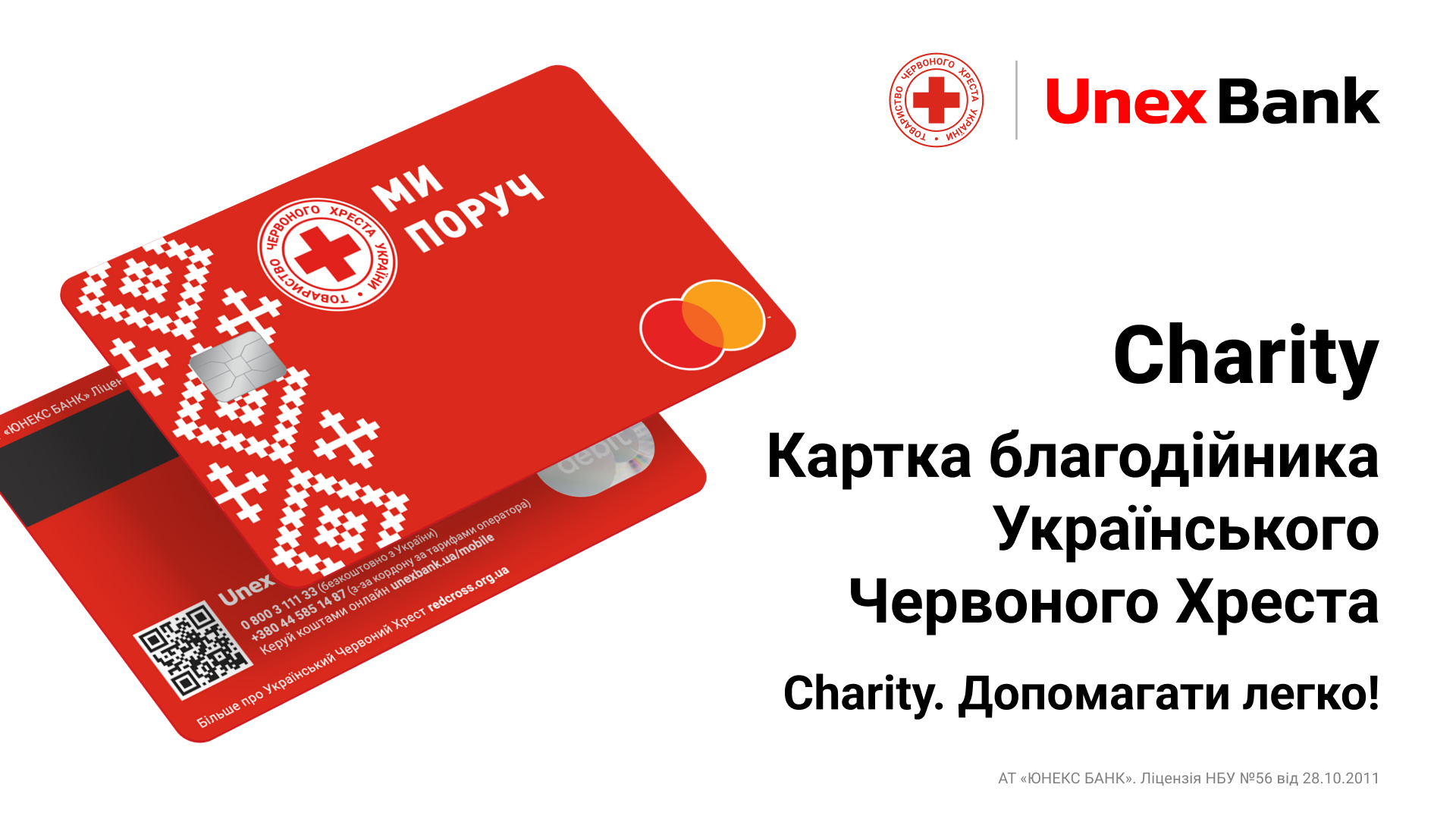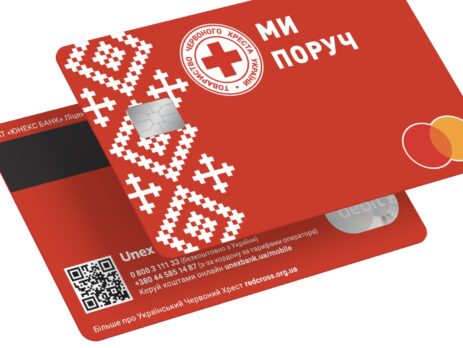Giving Made Easy: Unex Bank and the Ukrainian Red Cross Launch Charity Credit Card for Ukrainians
Unex Bank will transfer all cashback earned from card payments, along with a portion of the interest accrued on the Charity card balance, to the Ukrainian Red Cross account on a monthly basis, with the client’s consent. These funds will be used to support vulnerable groups, including internally displaced persons (IDPs), large families, and people with disabilities.
On 13 February 2025, Unex Bank and the Ukrainian Red Cross began issuing the Charity credit card.
The Charity card, based on the Mastercard payment system, is a versatile banking product that allows each cardholder to support the Ukrainian Red Cross’s charitable projects without spending their own money.
“Unex Bank offers 0,5% cashback on all card purchases starting from UAH 1, including foreign transactions and purchases made using the credit limit. There is no need to select categories or activate cashback – it works automatically. Every time you make a purchase with your card, you earn cashback. At the start of each month, all accumulated rewards, minus taxes, are automatically transferred to the Ukrainian Red Cross account, with the client’s prior consent. Additionally, the card offers an annual interest rate of 6% on the balance of your own funds, with a quarter of this amount, with the client’s consent, also being donated to charity on a monthly basis,” explained Alina Kompanets, Chief Marketing Officer at Unex Bank.
In addition, the card offers the option to activate a credit limit with a grace period of up to 62 days, during which no interest is charged if the balance is paid in full. The client can choose whether or not to use this feature at their own discretion. This means the card can function purely as a debit card for purchases or as a full-fledged credit card.
The Charity card is free to issue and maintain. It is available to all adult Ukrainians in both digital form – which can be obtained online in just 5 minutes – and as a physical plastic card. The physical card can be obtained either in addition to the virtual card or separately at any Unex Bank branch.
“At the end of last year, we launched the inclusive ‘Vidchui’ card for Ukrainians who need our support. From today, everyone can easily contribute to charitable initiatives with the Charity card – simply by paying for their purchases and earning cashback. We encourage Ukrainian companies to join the project. Together, we can do even more good!” emphasised Olena Skrypnikova, Head of the Innovative Financing Unit at the Ukrainian Red Cross.

__________
About Unex Bank (https://unexbank.ua/)
Unex Bank is a new-generation European bank that has been operating in the Ukrainian market since 1993. In April 2021, the bank came under new ownership, with Dragon Capital, Ukraine’s largest investment company, holding a 75% stake and Czech citizen Ivan Svitek owning the remaining 25%. In the spring of 2022, Unex Bank launched a charity project through which thousands of Ukrainian women with children received non-repayable financial assistance from the global crypto community. The bank operates through 18 branches across 13 regions.
About Mastercard (www.mastercard.com)
Mastercard helps develop economies and expand opportunities for people in more than 200 countries and territories worldwide. Together with our partners, we build a sustainable economy where everyone has the potential for growth. We offer a wide range of digital payment solutions, making transactions secure, simple, convenient, and affordable. The combination of our technology and innovation, partnerships, and extensive network creates a unique ecosystem of products and services that help individuals, businesses, and governments realise their full potential.
About the Ukrainian Red Cross (https://redcross.org.ua/)
The Ukrainian Red Cross is the largest national humanitarian organisation in Ukraine and has provided assistance to more than 12.5 million people since the beginning of the full-scale invasion. Volunteers and staff are currently supporting the most vulnerable populations not only with food parcels and hygiene kits but also by helping to restore housing, set up shelters and medical facilities, care for the elderly and disabled, provide psychosocial support, and teach first aid.

